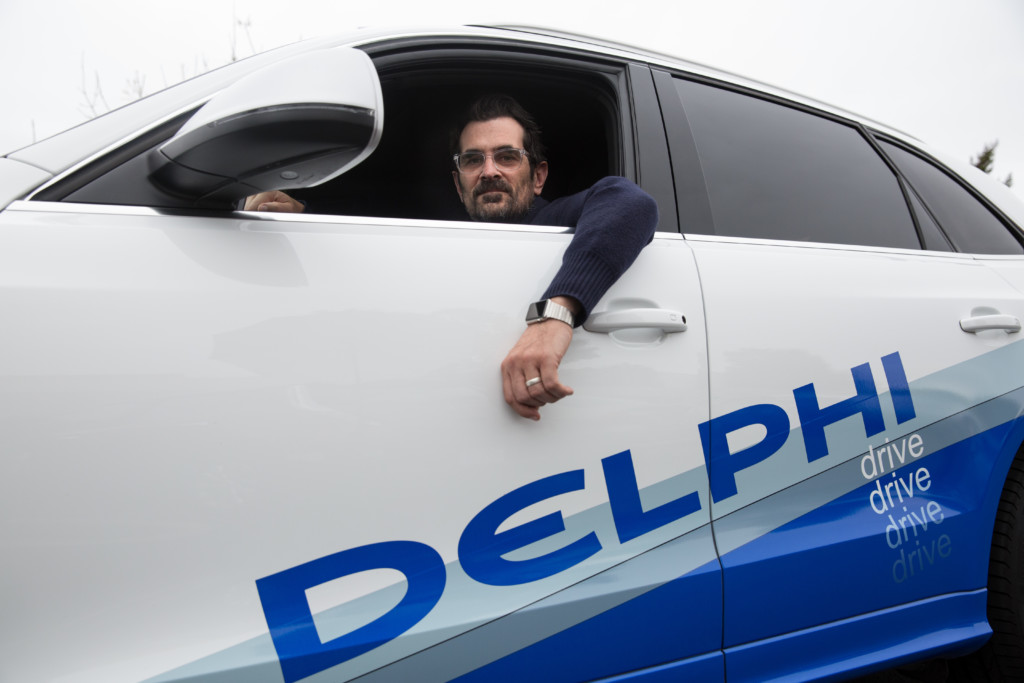Just two years ago, Georgia was an unlikely national leader in electric vehicle sales. Boosted by one of the nation’s most generous state-level EV tax incentives, by early 2014, Georgia trailed only California in EV registrations. Then, in January 2015, a new measure slipped into the state’s $1 billion transportation bill killed the credit, and added another $200 annual fee for EV drivers. Electric car sales immediately fell off a cliff.
According to Don Francis, the coordinator of Clean Cities-Georgia and Executive Director of the Partnership for Clean Transportation, overall EV sales fell by 90 percent, and sales of the Nissan LEAF are off nearly 95 percent.
On Wednesday night, Years of Living Dangerously will cover the brief, volatile history of electric cars in Georgia, with actor Ty Burrell traveling to Atlanta to see the effects of the slashed EV incentives on the transportation system and talk with local drivers.
Here’s how Atlanta Magazine described the history of the legislation:
In January 2015, state Representative Chuck Martin, an Alpharetta Republican, introduced a bill to kill the state credit partly on the argument that it gave electric vehicles an unfair advantage over other low-emission cars such as the Chevrolet Volt. Martin’s measure got lumped into the $1 billion transportation bill, which raised the state’s gas tax to pay for road improvements. As if that weren’t enough, lawmakers slapped electric vehicle owners with an additional $200 annual fee on the logic that it wasn’t fair to make drivers of gas-powered vehicles bear the entire cost of road maintenance. When the new laws went into effect on July 1, the emerging electric vehicle market was immediately eviscerated. Statewide registrations plummeted from 1,338 in June to 115 in October.
But there’s more to the story. Martin’s bill looks similar to model bills that have been pushed by the American Legislative Exchange Council (ALEC), a Koch-funded entity that pushes fossil fuel-friendly agendas through state legislatures.
As the Center for Media and Democracy has noted, ALEC recently began pushing the Koch’s anti-EV agenda:
At the American Legislative Exchange Council (ALEC) meeting in Scottsdale, Arizona in December 2015, the Energy, Environment, and Agriculture Task Force heard a presentation on “State and Federal Subsidies for Electric Vehicles,” then voted on a resolution to discourage states from providing subsidies, the “Resolution Regarding Subsidies for Electric Vehicles.” The Kochs have long funded ALEC. Koch Industries has had a seat on ALEC’s “Private Enterprise” board for years, while Koch network entities like Freedom Partners, Americans for Prosperity, and Koch-funded “think tanks” have seats on a number of task forces where they get a vote on bills.
We’ll have to tune in Wednesday night to see if Burrell learns anything of ALEC’s involvement in the killing of Georgia’s EV incentive and the new annual fees.
With the incoming Trump administration unlikely to push any EV-friendly policies on the federal level — and the prospects for actively killing federal EV tax credits — these state level incentives will be increasingly important in getting more drivers behind the wheels of electric cars.
Earlier this year, investigative reporter Peter Stone revealed the Koch brothers’ plans “to spend about $10 million dollars per year to boost petroleum-based transportation fuels and attack government subsidies for electric vehicles.
On Koch vs Clean, a DeSmog project, we are tracking the Koch-funded attacks on clean energy and electric vehicles at the state and federal levels. The history of the EV incentive in Georgia should be both instructive and a stark warning for how influential the Koch network can be in state policy.
Here’s the full description of Wednesday night’s episode, which airs on the National Geographic Channel:
Almost one-fifth of all carbon emissions in the world come from the transportation sector. Actor Ty Burrell takes to the road to see the environmental revolutions being made in electric vehicles (EVs) and automated vehicles (AVs). Burrell visits Silicon Valley to learn about AV advancements and hear how big automakers are pouring major capital into AV technology. In Atlanta, where some of the country’s most generous EV incentives were recently killed, Burrell makes a visit to see the effects and hear firsthand from EV advocates. Action hero, politician, climate crusader and Years of Living Dangerously executive producer Arnold Schwarzenegger sets out to explore the military’s relationship with a changing climate, including how our armed forces are dealing with an increasing number of climate-related disasters and how the military is working to reduce its own carbon footprint. Schwarzenegger travels to Kuwait to visit soldiers and travel in a fuel convoy (where more than 3,000 soldiers have been killed or injured since 9/11). He learns how serious a threat the military perceives climate change to be, talks to top-level military leaders and meets the brave men and women who are dealing with climate change threats and disasters on the front lines.
Main image: Years of Living Dangerously
Subscribe to our newsletter
Stay up to date with DeSmog news and alerts






